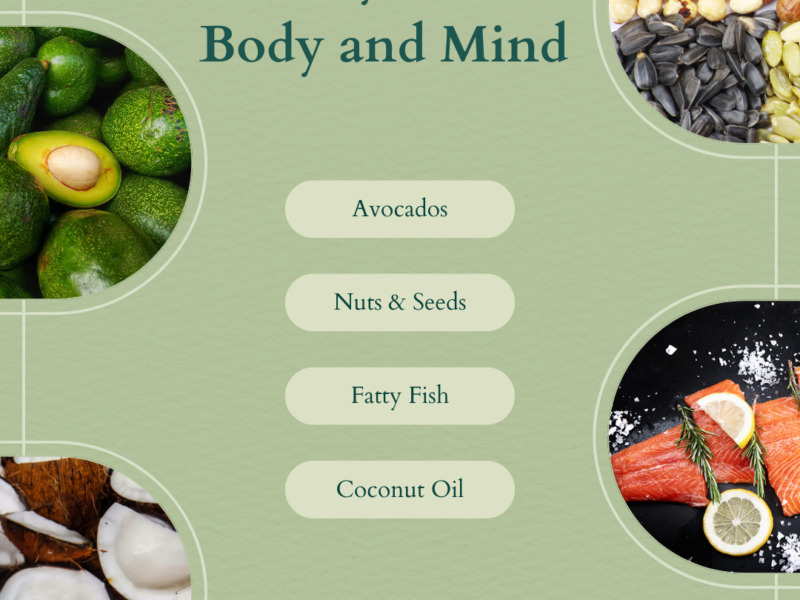Introduction:
Important fatty acids (EFAs) are a big part of nutrition because they help keep your health and well-being in general. It’s important to know which fats are “essential” for our bodies as we learn more about the different types of fats we eat. This blog post will talk about the importance of important fatty acids and shed light on the types and sources that are good for your health.
Understanding Essential Fatty Acids:
Essential fatty acids are a type of fat that our bodies can’t make on their own, so we have to get them from food. Omega-3 and Omega-6 are the two main types of important fatty acids. Both of these fats are important for many bodily functions, from neurological health to heart health.
Distinguishing Between Omega-3 and Omega-6:
Omega-3 Fatty Acids:

Omega-3s are very important for heart health and are famous for reducing inflammation. Fish that are high in fat, like salmon, mackerel, and sardines, have them. ALA, a type of Omega-3, can also be found in large amounts in flaxseeds, chia seeds, and walnuts, all of which come from plants.
Omega-6 Fatty Acids:

When it comes to skin health and immune function, omega-6 fatty acids are very important. Nuts and seeds, veggie oils like corn oil and soybean oil, are common sources. Even though Omega-6s are very important, it’s important to keep the amount of Omega-3 to Omega-6 in check for good health.
Why Are Essential Fatty Acids Important?

Heart Health:
Omega-3 fatty acids and Omega-6 fatty acids are both good for your heart. Omega-3s are known to lower blood pressure and triglycerides, and Omega-6s help keep cholesterol levels in a safe range.
Brain Function:
Essential fatty acids are very important for brain growth and working well. A type of Omega-3 called DHA is very important for keeping brain cells’ shape and function.
Inflammation Regulation:
Getting the right amount of Omega-3 and Omega-6 helps keep inflammation in check in the body. Heart disease, gout, and other health problems are all linked to chronic inflammation.
Sources of Essential Fatty Acids:
- Omega-3 Sources:
- Fatty fish (salmon, mackerel, tuna)
- Flaxseeds and flaxseed oil
- Chia seeds
- Walnuts
- Canola oil
- Omega-6 Sources:
- Vegetable oils (soybean oil, corn oil, safflower oil)
- Nuts and seeds (sunflower seeds, pumpkin seeds)
- Tofu
- Avocado
Maintaining the Balance:
Omega-6 fatty acids are more common in current diets than Omega-3 fatty acids, even though both are important. Finding the right mix between these two is important if you want to get all the health benefits of essential fatty acids.

Which is the essential fatty acids?
Omega-3 and Omega-6 are both essential fatty acids. These fats are important for many bodily processes, including heart health, brain function, and controlling inflammation.
Which of the following is an essential fatty acid quizlet?
Omega-3 and Omega-6 are two types of essential fatty acids that are often asked about on tests. You have to eat these fats because your body can’t make them on its own. They are very important for your health.
Is omega-3 an essential fatty acid?
Yes, Omega-3 is an important fatty acid. It helps keep your heart healthy, your brain working well, and it reduces inflammation. Fatty fish, flaxseeds, chia seeds, and peanuts are all common places to get it.
What type of compounds are fatty acids?
Carboxylic acids with long chains of hydrocarbons are what fatty acids are. They are the building blocks of fats and are necessary for the body to store energy, build cells, and do many other biological things.
Is Omega 9 an essential fatty acid?
Omega-9 fatty acids are not thought to be necessary. Omega-9 is different from Omega-3 and Omega-6 in that the body can make it itself. Omega-9, which can be found in bananas and olive oil, is still good for you, especially for your heart.
What is the difference between essential and non-essential fatty acids?
The most important difference is in how the body makes them. Omega-3 and Omega-6 essential fatty acids must come from food, since the body can’t make them itself. The body can make some non-essential fatty acids, like Omega-9, but getting them from food is still good for your health.
Conclusion:
To be in the best health possible, you need to know what important fatty acids do. It is possible to improve heart health, brain function, and a well-controlled inflammatory response by eating a range of foods that are high in both Omega-3 and Omega-6. When you’re trying to figure out which of these is a vital fatty acid, think about how important they are to your health as a whole.



